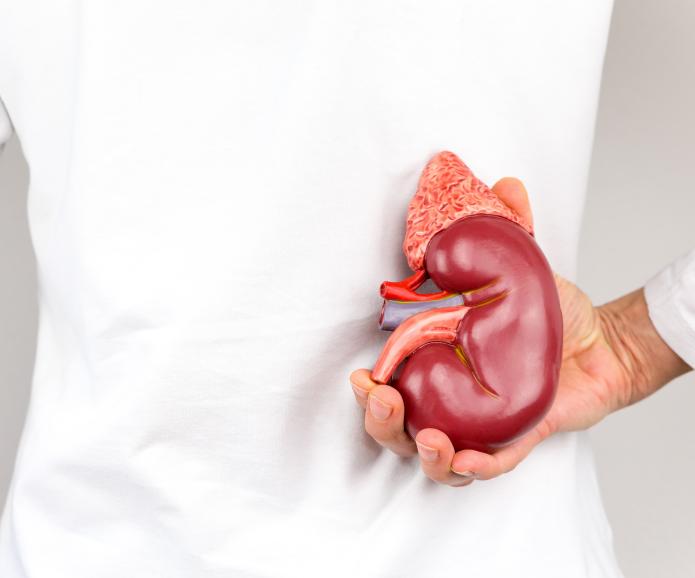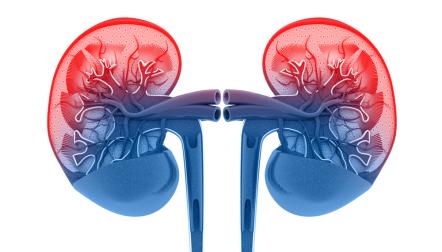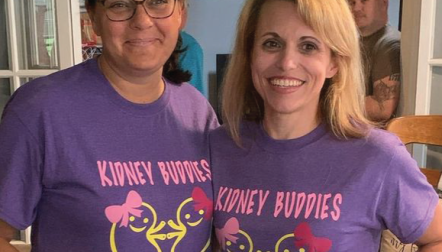
Stage 1 of chronic kidney disease CKD: Causes, symptoms and treatment

What is Stage 1 CKD?
At Stage 1 CKD, your kidneys still work well, but you may have early signs of kidney damage.
Stage 1 CKD means you have a normal estimated glomerular filtration rate (eGFR) of 90 or greater, but there is protein in your urine (i.e., your pee). The presence of protein alone means you are in Stage 1 CKD.
Stage 1 CKD means you have a normal estimated glomerular filtration rate (eGFR) of 90 or greater. Even if your eGFR is normal, the presence of a protein called albumin in the urine can indicate early kidney damage. The presence of protein alone doesn’t automatically lead to a Stage 1 CKD diagnosis. Your doctor may consider other factors like problems with the shape or structure of your kidneys when diagnosing CKD.

At stage 1 CKD, you may not notice any effects on your health. While the damage to your kidneys may not be reversible, there is a lot you can do at this stage to keep your kidneys working well for as long as possible.
Understanding uACR
Causes, symptoms and treatment
What are the symptoms of stage 1 CKD?
People at Stage 1 CKD usually don't know they have kidney disease because they don't have any symptoms. However, there are some signs that doctors may notice when testing for kidney damage or other health conditions.
Signs and symptoms of Stage 1 CKD include:
- High blood pressure
- Swelling in your hands or feet
- Urinary tract infections
- Protein in your urine (proteinuria)
- Blood in your urine (also called hematuria)
- Kidney damage that shows up in an imaging test such as ultrasound, CT scan, MRI, or kidney biopsy
At stage 1 CKD, you may not notice any effects on your health. While damage to your kidneys may not be reversible, there is a lot you can do at this stage to keep your kidneys working well.

How can doctors tell if I have CKD?
While most people with Stage 1 CKD don't have any symptoms, if you have a family history of kidney disease, or a health condition that can damage your kidneys, such as diabetes or high blood pressure, your doctor may run some tests.
To find out if you have CKD, doctors will do tests, such as:
- Urine tests
- eGFR blood tests
- Blood pressure checks
- Imaging tests to take detailed pictures of the inside of your body, such as ultrasound, CT scan or MRI
In Stage 1 CKD, annual checkups are important for detecting early signs of kidney damage and addressing risk factors like high blood pressure or diabetes. Even though kidney function is normal, annual visits help your doctor make necessary adjustments to your care plan.
How do doctors treat stage 1 CKD?
To slow down kidney damage and keep your kidneys working well for as long as possible, doctors will help you:
Doctors will work with you to:
- Control your blood sugar if you have diabetes.
- Keep your blood pressure in a healthy range for you (for most people with CKD not on dialysis the goal is less than 120/80 millimeters of mercury, or mm Hg).
- Decide if you should start or stop any medicines to help protect your kidneys.
- Determine if you should start taking medicine or stop any that may cause kidney damage.
Find a nephrologist (kidney doctor) or talk to your regular doctor about finding one. You and your nephrologist can work together to make a treatment plan just for you.
It's important to work with them to develop a personalized plan to manage your CKD. Individualized care helps prevent further damage and addresses any underlying conditions. Regular check-ups are essential, even if you feel well, to detect changes early and avoid further damage.
How can I slow down the damage to my kidneys?
At Stage 1 CKD, there is a lot you can do to help keep your kidneys working well. Here are some healthy life changes you can make:
- Follow a kidney-friendly eating plan.A dietitian (nutrition expert) can help you plan healthy meals and snacks you'll want to eat based on your lab results.
- Be active for at least 30 minutes on most days of the week. This can be anything from walking or riding a bike to swimming or dancing.
- Keep a healthy weight. Talk with your doctor about what a healthy weight is for you.
- Quit smoking or using tobacco.

Keeping the memory alive
Fundraise for AKF
“I wanted to do something to honor my mom, and loved that my fundraiser could help kids with kidney disease go to summer camp.” -Jose Ortiz, KidneyNation fundraiser
Support AKF anywhere, anytime — and have fun while doing it! Join an AKF 37 Mile Challenge. Pledge your birthday. Or create a fundraiser that's unique to you. We are here to support you along the way.


